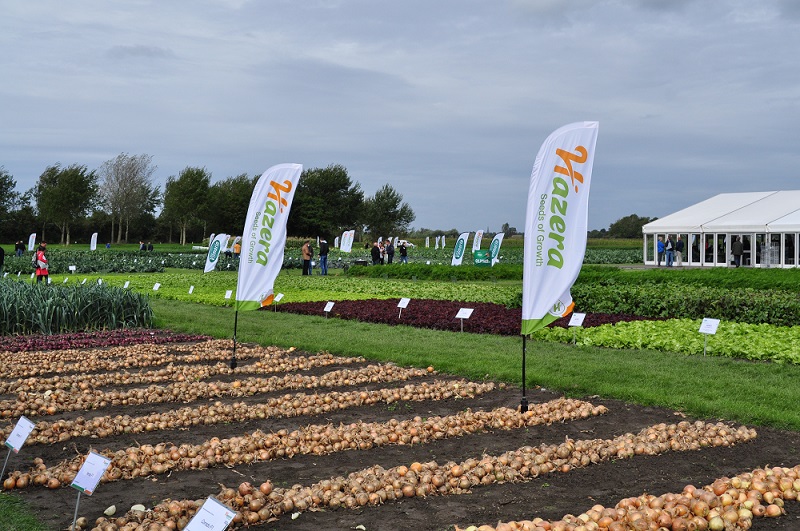Skip to content
| Uniform variety recommended for harvesting in June and September. |
Perfect for early summer, late summer, and autumn!
Koros F1 (CLX 3504) is a uniform variety.
The variety is best planted in March and July. Harvesting period: week 1 to 3 in June, September and October.
Few growing days and a compact plant
- Very good in early summer, late summer, and autumn cultivation.
- Approximately 8-10 days faster than current varieties.
- Koros F1 grows quickly and is reliable in terms of growing days.
- Thanks to the compact and firm plant, Koros is easy to handle.
Labour friendly
- Good uniformity so that 2 harvesting rounds will often suffice to harvest an entire parcel.
- Very good view of the umbel; umbel high up in the plant.
- Very low susceptibility to shoot malformation, meaning that only few leaves have to be plucked from the umbel.
- High seal speed thanks to compact round and deeply tucked umbel shape.
Productive
- Low susceptibility to hollow stem; the stem is heavy and thick.
- Round and deep, very firm umbel, easy weights between 500 and 800 grammes.
- High percentage of good umbels.
Quality
- Very fine grain.
- Round and attractive umbel shape.
High disease resistance
- Mildew: IR.
- Soft rot: low susceptibility thanks to round umbel with very good bloom.
print
Legal terms
Attention: This information and any complementary/other verbal or written information that may be given on behalf of Hazera, present average results of specific trials; these are neither exhaustive nor necessarily accurate and may not be regarded as advice, guidance, recommendation, representation or warranty. Sowing times and growing areas are indicative only. Pictures are illustrative only. The sale & use of seeds are subject to the terms and conditions appearing collectively on seed packages and in catalogues and/or at: http://www.hazera.com/terms-and-limitatons. E&OE. © 2022 Hazera. All rights reserved.
For tomatoes:
* The varieties contain the resistant gene/s ” that known for now, however, resistant strains may exhibit some disease symptoms or damage under heavy pest pressure and/or under adverse environmental conditions. Soil temperature above 27°C and other stresses may cause nematode resistance to break.
** Please refer to the ISF definition of this term at http://www.worldseed.org/. A copy of the definitions for terms describing reactions of plants to pests for the Vegetable Seed Industry, can be obtained at our offices upon demand.
For all other crops:
* Resistant varieties may exhibit some disease symptoms or damage under heavy pest pressure and/or under adverse environmental conditions and/or in the face of new biotypes, pathotypes, races or strains of the pest that may emerge.
**please refer to the ISF definitions at http://www.worldseed.org. A copy of the definitions for terms describing reactions of plants to pests for the Vegetable Seed Industry, can be obtained at our offices upon demand.




